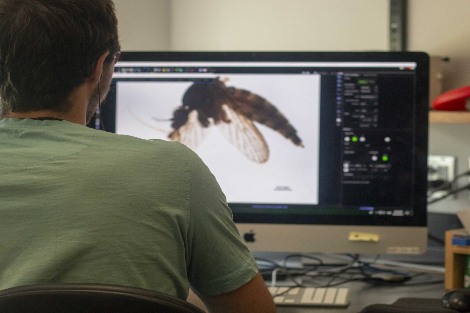Prof. Robert Hanner discusses biodiversity genomics and food fraud.
Humans share this planet with millions of species. A few of those species are food sources, while most of the others lie at the margins of daily life but are central to the health of the planetary ecosystem. Human population growth creates an escalating conflict with the natural world, causing major declines in the health of the environment and global biodiversity.

Biodiversity research with Food from Thought will provide a platform for agri-food and biodiversity science to expand comprehensive knowledge of food systems in unprecedented detail. This work will help with environmental impact assessments, organism study, researching pests, pathogens and invasive species as well as food fraud.
DNA barcoding is a technique that allows us to identify the diversity of species in an ecosystem based on their DNA, and holds enormous promise for diverse applications in environmental monitoring and management. However, the application of DNA barcoding still faces some challenges, due to expensive analysis techniques, errors in DNA identification, and an incomplete reference library of DNA barcodes.
Investigators will collaborate with other Food from Thought researchers to use DNA barcoding to analyze the presence and diversity of insects at various agricultural sites, and provide a baseline measurement of biodiversity levels that can be used in environmental impact assessments, using data from Costa Rica as well as a number of Ontario provincial parks.
Food from Thought will also advance the science of DNA barcoding by developing protocols to assess DNA from bulk environmental samples; develop techniques to ‘denoise’ or reduce error rates in DNA analysis; develop a desktop application for mBRAVE, a cloud-based informatics platform; and develop a protocol to greatly reduce the cost of DNA barcoding, enabling its use for a variety of purposes.